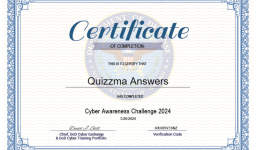- 9th Grade
- Lexile: 1090
Source: Want to Get Into College? Learn to Fail by Angel B. Pérez
Assessment Answers
| Question | Answer |
|---|---|
| PART A: Which of the following identifies the central idea of the text? | Students who are open about their failures show that they have the ability to grow and be successful in college and beyond. |
| PART B: Which detail from the text best supports the answer to Part A? | “The ability to bounce back is a fundamental life skill students have to learn on their own. The lessons of failure can’t be taught in a classroom; they are experienced and reflected upon.” (Paragraph 7) |
| PART A: How does the example of the student who failed precalculus in paragraphs 7-8 contribute to the development of ideas in the article? | It gives an example of a student who failed and turned it into a positive experience. |
| PART B: Which section from the text best supports the answer to Part A? | “‘I realized that I can’t let a grade define my success. I also learned that if you want anything bad enough, you can achieve it.'” (Paragraph 7) |
How does the author view the idea that you have to be perfect in order to get into college?
Based on the text, the author strongly disapproves of the idea that you must be perfect to get into college. Here’s why:
- He challenges the pressure for perfection: He opens the article by mentioning a student who said “I look forward to the possibility of failure,” stating that this is not the typical response, highlighting the unrealistic pressure students face.
- He criticizes hiding imperfections: He mentions students trying to hide “negative factors” and emphasizes the prevalence of this culture. He even states “perfection doesn’t exist” and admission officers find it “skeptical.”
- He values learning from failure: He dedicates significant space to discussing the importance of failure and learning from it, using student examples like the one who retook precalculus. He states “The lessons of failure can’t be taught in a classroom” and “failure is about growth, learning, overcoming, and moving on.”
- He encourages honesty and authenticity: He applauds the student who openly shared his failure and lessons learned, stating, “This kid will thrive on my campus.”
Overall, the author presents a clear message that perfection is not expected or desired. He encourages students to be genuine, embrace their failures, and showcase their growth mindset, as these qualities are more valuable for college success than a flawless record.
Discussion Answers
To what extent do Angel B. Pérez’s claims apply to you and your approach to school and life? How would you describe your personal attitude toward perfection and failure?
Here are some points from the text that you might find relevant:
- Students feel pressure to be perfect: The author describes a widespread pressure on students to achieve perfection, particularly in academics and college applications.
- Perfection is unrealistic: The author argues that perfection is unattainable and undesirable, and that colleges value authenticity and resilience more than a flawless record.
- Failure is a learning opportunity: The author emphasizes the importance of learning from failures and setbacks, as they can teach valuable life skills and demonstrate growth mindset.
Reflect on your own experiences:
- Do you feel pressure to achieve perfection in school or other areas of your life?
- How do you react to failures or setbacks? Do you see them as opportunities to learn and grow, or do they define you?
- What is your personal definition of success? Is it based on achieving perfection, or something else?
By considering these questions and the information from the text, you can develop your own personal response about your attitude towards perfection and failure. Remember, no single “right” answer exists, and your experiences and perspectives are unique.
In this text, the author gives examples of students whose failures helped them grow. In your experience, how can failure help a person learn and ultimately succeed?
Failures can help people learn and ultimately succeed in several ways:
1. Exposing Knowledge Gaps: When you attempt something and fail, it often highlights areas where you lack knowledge or understanding. This awareness allows you to identify specific areas for improvement and focus your learning efforts more effectively.
2. Building Resilience: Overcoming failure requires persistence, adaptability, and emotional regulation. Facing challenges and learning from them strengthens these crucial skills, making you better equipped to handle future setbacks and bounce back stronger.
3. Developing Problem-Solving Skills: Analyzing what went wrong in a failure situation encourages critical thinking and creative problem-solving. You learn to consider different solutions, evaluate potential outcomes, and adapt your approach in the future.
4. Fostering Growth Mindset: Embracing failure as a learning opportunity encourages a growth mindset. This belief that abilities can be developed through effort and experience motivates you to persist in the face of challenges and continuously strive for improvement.
5. Expanding Comfort Zone: Stepping outside your comfort zone and experiencing failure can push you to try new things, explore different paths, and discover hidden strengths. This exploration can lead to unexpected opportunities and personal growth.
Examples:
- A student who fails a test identifies their weak study habits, leading them to develop better learning strategies and achieve higher grades later.
- An athlete who loses a competition analyzes their mistakes and improves their technique, eventually reaching their full potential.
- An entrepreneur who launches an unsuccessful business learns valuable lessons about marketing and customer needs, leading to success in their next venture.
While the experience of failure might be unpleasant, it serves as a valuable teacher in disguise. By embracing its lessons and applying them to future endeavors, individuals can ultimately learn, grow, and achieve greater success.
In the context of this text, what is the goal of education? In your view, is that the right goal? How should schools and teachers help students learn how to fail, grow, and succeed? Cite evidence from this text, your own experience, and other literature, art, or history in your answer.
The author emphasizes:
- Learning from failure: He highlights stories of students who bounced back from setbacks and showcases their growth as valuable qualities for college admissions.
- Developing resilience: He points out that teenagers “do silly things, mess up, fall down, and lack confidence” and emphasizes the importance of “the ability to bounce back” as a fundamental life skill.
- Valuing authenticity over perfection: He critiques the pressure for perfection and encourages students to be “real” and showcase their true selves with flaws and all.
Based on these points, one could argue that the text presents a multifaceted goal of education:
- Acquiring knowledge and skills: This fundamental aspect remains important.
- Developing crucial life skills: Learning from failure, building resilience, and embracing authenticity are crucial for navigating life’s challenges.
- Preparing students for future success: This success is not defined by perfection but by personal growth, resilience, and the ability to learn and adapt.
Is this the right goal of education? Different perspectives exist on this:
- Arguments for: This broader approach equips students with well-rounded skills for life beyond academics, fostering adaptability, self-awareness, and the ability to overcome challenges.
- Arguments against: Some might argue that core academic skills should remain the sole focus, and life skills can be learned outside formal education.
Ultimately, defining the “right” goal depends on societal values and priorities.
How can schools and teachers help students learn from failure and grow? The text offers some insights:
- Embrace honest reflection: Encourage students to openly discuss failures and analyze what went wrong, instead of hiding them.
- Celebrate effort and growth: Highlight the value of overcoming challenges and learning from mistakes, not just perfect outcomes.
- Create safe spaces for experimentation: Allow opportunities for students to try new things and potentially fail without fear of ridicule or punishment.
- Provide personalized support: Offer guidance and resources to help students learn from specific setbacks and develop coping mechanisms.
Beyond the text, consider these examples:
- Art education: Students often experiment with different techniques and styles, accepting that not everything will work perfectly. The focus is on exploration, learning, and expressing oneself authentically.
- Sports: Athletes constantly face setbacks and defeats. Coaches emphasize learning from mistakes, analyzing strategies, and adjusting approaches for future success.
- History: Studying historical figures highlights their struggles, failures, and eventual achievements, showcasing the importance of resilience and growth.
In the context of this text, why do people succeed? What personal qualities contribute most to a person’s success? Cite evidence from this text, your own experience, and other literature, art, or history in your answer.
The text suggests people succeed not solely through academic perfection but through a combination of factors:
- Learning from failure: The author highlights stories of students like the one who overcame failing precalculus, showcasing resilience and growth as valuable qualities.
- Developing essential life skills: “The ability to bounce back is a fundamental life skill students have to learn on their own,” the author emphasizes, suggesting skills like resilience and adaptability contribute to success.
- Embracing authenticity: He critiques the pressure for perfection and encourages students to be “real,” suggesting that genuineness and self-awareness play a role.
Based on these points, here are some personal qualities that might contribute to success in this context:
- Growth mindset: Viewing challenges as opportunities to learn and improve, demonstrated by the student who learned from failure in precalculus.
- Resilience: Bouncing back from setbacks and adapting to difficulties, as highlighted by the author as a crucial life skill.
- Authenticity: Being true to oneself and embracing imperfections, encouraged by the author’s critique of the pressure for perfection.
- Curiosity and openness to learning: Seeking new experiences and knowledge, essential for growth and overcoming challenges.
- Determination and perseverance: Not giving up easily and persisting in the face of obstacles, a quality evident in students who learn from failure.
These qualities resonate with broader examples:
- Literature: J.K. Rowling’s perseverance through rejections before publishing “Harry Potter” exemplifies determination.
- Art: Vincent van Gogh’s dedication despite lack of recognition during his lifetime highlights the importance of believing in oneself.
- History: Nelson Mandela’s long struggle against apartheid and his eventual success demonstrate resilience and determination.
It’s important to remember that the definition of success varies across individuals and contexts. However, the qualities emphasized in the text and broader examples suggest that going beyond just academic achievement and embracing personal growth, resilience, and authenticity can pave the way for success in various aspects of life.
Other Commonlit Answers
- I, Too Commonlit Answers
- Why It Matters That Teens Are Reading Less Commonlit Answers
- To My Dear And Loving Husband Commonlit Answers
- Adolescence And The Teenage Crush Commonlit Answers
- Total Control In North Korea
- Was It A Dream?
- Story Of An Hour
- The Necklace
- The Most Dangerous Game
- The Lottery
- Conformity
- The Life of Julius Caesar
- On Tragedy Commonlit Answers
- A Child Of Slavery Who Taught A Generation Commonlit Answers




Leave a comment